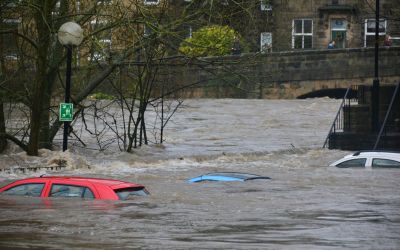COP16 modest ambitions could lead to a treaty
In light of the failure to reach an agreement in Copenhagen and subsequent lowered ambitions, success in the 16th Conference of Parties (COP16) is anticipated in the form of an agreement on how to negotiate.

In light of the failure to reach an agreement in Copenhagen and subsequent lowered ambitions, success in the 16th Conference of Parties (COP16) is anticipated in the form of an agreement on how to negotiate.
A three-way pact developed by Denmark, Mexico and South Africa is expected to enhance continuity of efforts and lead to balanced decisions in COP16, held in Cancun from 29th November to 10th December. The hope from the deal is that fast-start financing and transparency of actions by each party will lead to increased trust.
The presidents of COP15, COP16 and COP17 will act together in urging parties from developed countries to deliver on their pledges made in Copenhagen. It is anticipated that funding for developing nations, to help them reach their green targets, will help the move towards a collective climate change agenda.
Mexican Foreign Minister, Patricia Espinosa believes that the meeting in Cancun will be the start of a new era, delivering accomplishments according to common yet differentiated responsibilities of each nation. In a statement she says it's clear that there are great opportunities in clean technologies, practices and development projects. The first move though is reaching a collective agreement.
Climate change impacts 71 per cent of GDP and 68 per cent of our population, she suggests. The longer the delay in cooperation between nations, the more that climate change will cost us. The International Energy Agency (IEA) said in a report last week that the cost of global warming on our planet by 2030 has risen by $1 trillion to $18 trillion because of delays in action in 2010.
The technology and resources to tackle global warming are available, yet political discrepancies in climate talks have held back progress and at a high price. Squabbling between the US and China, the top greenhouse gas emitters, over who should make the biggest cuts, has taken the focus off collaboration from all nations. The Intergovernmental Panel on Climate Change (IPCC) said in a report in 2007 that to keep the rises in temperature to within 2C, governments need to exploit new technologies to cut greenhouse gas emissions.
The outcome from a costly failure to reach an agreement in Copenhagen is that the ambition for COP16 has needed to be lowered. The overall plan for Cancun includes a fund to manage aid to poor nations, new ways to share clean technology and a strategy to protect tropical rainforests.
Executive Secretary of the UN Framework Convention on Climate Change (UNFCCC) Christiana Figueres, said climate aid is the "golden key" to progress in Cancun. The Adaptation Fund is being developed to help poorer nations cope with the changing climate and reach their green targets. The UN Reducing Emissions from Deforestation and Forest Degradation (REDD) Programme also expects to evolve its funding mechanism and will hold an event in Cancun on 2nd December, alongside COP16.
So far, during its fifth policy board meeting in Washington, D.C. held 4th - 5th November 2010, the UN-REDD Programme approved a total of US$51.4 million of funding to support governments of developing nations in preparing and implementing national REDD+ strategies.
With numerous mechanisms of funding in place, it is anticipated that remaining concerns from developing nations will be closer met in Cancun. The effective implementation of these processes will push for synchronising normative international frameworks so that an international treaty on climate change can be attained.
The last formal negotiations session by the Ad hoc Working Groups was held in Tianjin, China from 4th - 9th October, so governments involved in COP16 discussions are tackling with their perceived status with regard to climate change strategy and renewable energy prior to the summit. Christiana Figueres stated that governments have made progress in defining what can be achieved in Cancun. She believes this will include, "a new level of climate action - among rich and poor, business and consumers, governments and citizens."
Modest goals set for COP16 could help to focus efforts on the central issue-negotiation. It is recognised by developed nations that to achieve this, promises made in Copenhagen need to be adhered to, so improved processes are underway. Increased trust and agreement from working together in Cancun, aided by the three-way pact, is hoped to lead to a treaty, meaning that the next conference in South Africa in 2011 could form more robust plans
Author: Marianna Keen | Climate Action
Image: æ‚ éŠå±±åŸŽ.樹玫瑰.åºåœ’美食 | Flickr






